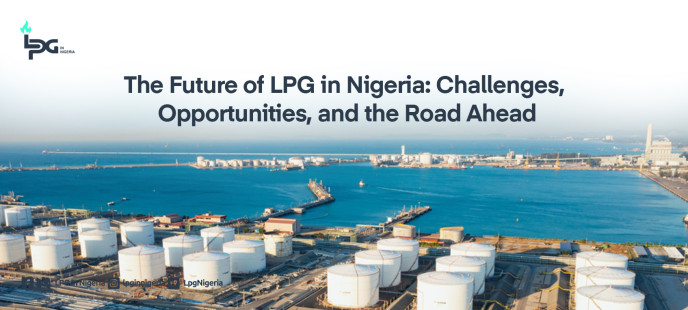- 5570
- 0
Sharing Ideas and Updates on LPG in Nigeria and related information to enable effective collaboration within the LPG Value Chain
The Future Of LPG In Nigeria: Challenges, Opportunities, And The Road Ahead

As Nigeria continues to navigate its energy transition, Liquefied Petroleum Gas (LPG) is playing a crucial role in bridging the gap between traditional fossil fuels and cleaner energy solutions. With the federal government’s push to increase LPG adoption and reduce reliance on kerosene, firewood, and charcoal, the market is experiencing significant shifts. However, challenges such as price volatility, inadequate infrastructure, and safety concerns still persist.
The Growing Demand for LPG in Nigeria
LPG consumption in Nigeria has grown steadily over the years, driven by increased awareness of its benefits, government policies, and rising health concerns associated with traditional cooking fuels. The Nigerian government aims to deepen LPG penetration, targeting five million metric tonnes of annual consumption by 2030. This ambitious goal aligns with Nigeria’s broader Energy Transition Plan (ETP), which seeks to cut carbon emissions and promote cleaner energy sources.
Challenges Facing LPG Expansion in Nigeria
Despite its benefits, LPG adoption in Nigeria faces several challenges, including:
Price Volatility: The price of LPG has fluctuated significantly due to factors such as exchange rate instability, international market dynamics, and supply chain disruptions. In 2024, for example, the cost per kilogram of LPG soared, making affordability a key concern for many households.
Infrastructure Gaps: Nigeria’s LPG infrastructure, including storage and distribution networks, remains underdeveloped. Many regions still struggle with supply shortages due to inadequate storage terminals and bottlenecks in transportation.
Safety and Illegal Gas Outlets: The proliferation of illegal gas refilling stations has raised serious safety concerns. Incidents of gas explosions due to substandard installations and unsafe handling practices have highlighted the need for stricter enforcement of safety regulations by the Nigerian Midstream and Downstream Petroleum Regulatory Authority (NMDPRA).
Limited Financing Options: Many businesses and households interested in switching to LPG face financial constraints, as the cost of purchasing cylinders and accessories remains relatively high.
Opportunities for Growth in the LPG Sector
Despite these challenges, there are immense opportunities for investment and expansion in Nigeria’s LPG market:
✅ Government Incentives: The Nigerian government has introduced policies such as zero import duty on LPG equipment to encourage market growth. Additionally, initiatives under the National Gas Expansion Programme (NGEP) aim to boost local LPG production and reduce dependence on imports.
✅ Public-Private Partnerships: Increased collaboration between government agencies and private investors is driving the development of LPG refilling stations, pipelines, and bulk storage facilities across the country.
✅ LPG as an Alternative for Transportation: The conversation around Autogas (LPG-powered vehicles) is gaining momentum. As fuel subsidy removal impacts petrol and diesel prices, more transport operators are considering LPG as a cost-effective alternative.
✅ Awareness and Sensitization Campaigns: Educating Nigerians about the benefits and safe handling of LPG will play a key role in increasing adoption and preventing accidents. Programs promoting cylinder exchange schemes and safer refilling methods are critical in this regard.
The Road Ahead: What’s Next for LPG in Nigeria?
The future of LPG in Nigeria looks promising, but success depends on policy consistency, infrastructure development, and affordability. While LPG remains a cleaner and more sustainable option compared to kerosene and firewood, ensuring accessibility for all income groups will be crucial in achieving long-term energy security.
As Nigeria continues its journey towards a cleaner energy future, stakeholders—government, private investors, and consumers—must work together to overcome existing barriers and unlock the full potential of LPG. With the right investments and policy framework, LPG can serve as a catalyst for economic growth, environmental sustainability, and improved public health.
Final Thoughts
LPG is more than just a cooking fuel; it is a pathway to a cleaner, healthier, and more energy-secure Nigeria. As the industry evolves, stakeholders must embrace innovation, safety, and sustainability to ensure that LPG remains a viable energy solution for millions of Nigerians. The journey ahead may not be easy, but with strategic investments and government support, Nigeria can truly harness the power of LPG for a brighter energy future.
















0 Comment.